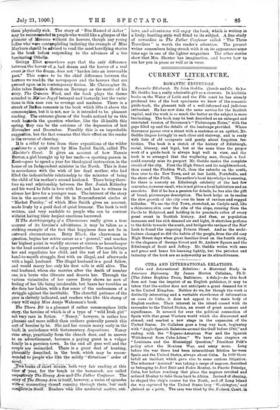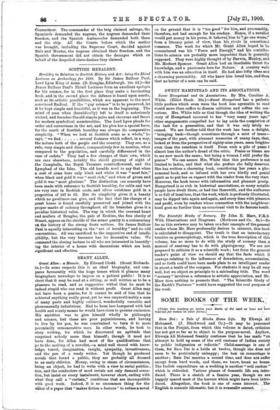CUBA AND "INTERNATIONAL RELATIONS.
Cuba and International Relations: a Historical Study in American Diplomacy. By James Morton Callahan, Ph.D. (The Johns Hopkins Press, Baltimore. 4 dole.)—As this book does not bear the imprint of an English publisher, it may be taken that the author does not anticipate a great demand for it in the United Kingdom. Neither do we, for though the work is distinctly interesting and a veritable storehouse of information on cosas de Cuba. it does not appeal to the main body of English readers. Their interest in the island ceased with its surrender to the United States, an event of great moment and significance. It severed for ever the political connection of Spain with that great Western world which she discovered and abused, and marked a new stage in the expansion of the United States. Dr. Callahan goes a long way back, beginning with " Anglo-Spanish Relations around the Gulf before 1783," and ending with the " Espano-American , War and the Spanish Withdrawal from Cuba-Libre." . We have also chapters on "Louisiana and the Mississippi Question," President Pollee policy after the Mexican War, and mug more. Long before the war there had been intermittent friction between Spain and the United States, always about Cub& In 1,139 there befell an incident which gave rise to some curious litigation. The schooner 'Au:listed ' was taking a cargo of negroes, described as belonging to Jose Ruiz and Pedro Montez, to Puerto Principe, Cuba, but before reaching that place the negroes revolted and ordered lifonteZ to take them back to Africa. .Instead of obeying, he Shaped. the:shili's course' for the North, and off Long Island she was ,captured by the United States brig 'Washington,' and claimed as a prize. -The case was tried b!
Connecticut. The commander of the brig claimed salvage, the Spaniards demanded the negroes, the negroes demanded their freedom, and the Spanish Ambassador demanded both them and the ship. All the Courts before which the matter was brought, including the Supreme Court, decided against Ruiz and Montez, the negroes obtained their freedom, and the Spanish Government did not obtain the damages which on behalf of the despoiled slave-dealers they claimed.



































 Previous page
Previous page